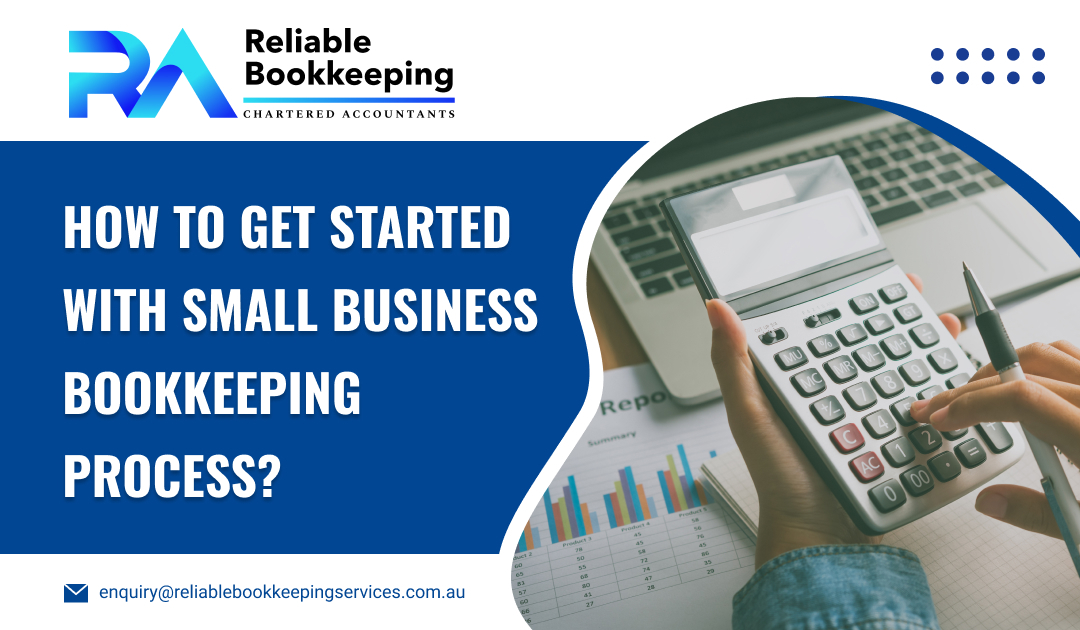Bookkeeping is often considered the primary part of any business, as small business bookkeeping plays a significant role in maintaining a company’s financial health and overall success. It includes keeping track of financial transactions and organising financial transactions, enabling businesses to track their financial performance, make informed decisions, and comply with legal and tax requirements. This blog will explore the significance of efficient bookkeeping, the ways in which it can positively impact businesses, and how proficient outsourced bookkeeping service providers can help streamline your bookkeeping process.
Importance of Bookkeeping for Small Business
Effective bookkeeping is crucial for businesses of all sizes and companies, as it provides a clear and accurate picture of their financial status. In this era, the right bookkeeping practices are essential, offering a variety of benefits that extend beyond only recordkeeping. Bookkeeping in Melbourne allows businesses to manage cash flows, assess their profitability, comply with taxes, and make informed decisions. Bookkeeping ensures that financial records are up to date and allows businesses to have a solid foundation for financial planning.
Get Started with Bookkeeping Process for Small Business
Bookkeeping is one of the most crucial processes of recording and sorting financial transactions within a business. It includes keeping track of the business’s expenses, income, liabilities, assets, and equity. With proper bookkeeping, you will come to know the financial performance of your company. Bookkeepers can also suggest different ways to improve the financial health of your company.
• Sort Financial Documents
A well-organised and efficient document management system is essential for financial recordkeeping. It ensures that important financial documents, such as invoices, receipts, and statements are stored systematically and easily accessible. This saves time during data entry and reduces the chances of errors. Moreover, it helps bookkeepers to respond quickly to financial analyses, audits, and inquiries, contributing to better financial performance.
• Bank Account Reconciliation
One of the key practices involved in financial recordkeeping is creating bank reconciliation statements. This involves carefully comparing the company’s financial records with the bank’s to ensure they match perfectly. By doing so, discrepancies, errors, or unauthorised transactions can be promptly identified and resolved. This protects the business’s financial integrity and provides an accurate and up-to-date picture of its financial performance.
• Monitor Cash Flow
By closely tracking cash transactions, bookkeepers can identify trends, assess potential cash flow issues, and ensure the company has the necessary liquidity to meet its financial obligations. This approach not only helps in preventing financial issues but also allows for effective budgeting and investment decisions.
• Financial Reports Review
By checking financial reports, bookkeepers can identify issues or discrepancies, enabling timely corrective actions. This approach will ensure that the financial records are updated and accurate, minimising the risk of errors that could result in financial mismanagement.
• Budgeting and Forecasting
A well-defined budget will help you set clear financial goals assign resources efficiently, and help in cost control. Forecasting offers insight into the company’s future financial health, allowing decision-making, and risk mitigation. These practices help bookkeepers and businesses maintain the financial status of the company.
• Tax Preparations
Ensuring that a business meets tax laws is an important part of financial management. Tax accountants in Melbourne can help you prepare for tax obligations to avoid last-minute rushes and prevent costly penalties. Staying up to date with tax laws and deadlines is crucial for accurate financial records.
Why does Bookkeeping Matter?
Creditors, investors, regulators, and suppliers need accurate financial records of your business. That’s why you need to maintain business books for your company.
• With the help of proper bookkeeping, you can prepare a BAS statement.
• It can help you make wise business decisions.
How Much Does a Bookkeeper Cost in Australia?
The cost of a bookkeeper depends on various factors, such as responsibility of a bookkeeper, location, experience, and expertise of a bookkeeper. On average, bookkeeping services range between $25-$60 per hour.
Conclusion
If you are facing difficulty managing your business books, then it is the right time to receive help from a professional bookkeeper for your company. You can get in touch with a Reliable Bookkeeping Services provider to stay ahead of your business finances.
Other Useful Links:-

